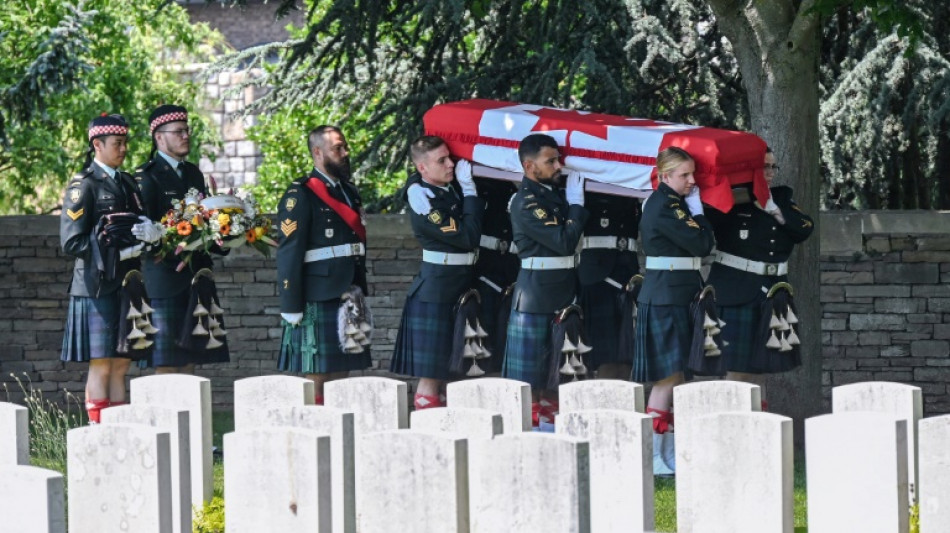
-
 Plenty of peaks, but skiing yet to take off in Central Asia
Plenty of peaks, but skiing yet to take off in Central Asia
-
UN aid relief a potential opening for Trump-Kim talks, say analysts
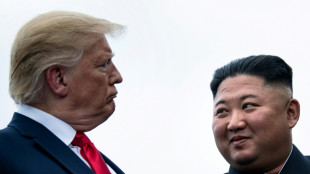
-
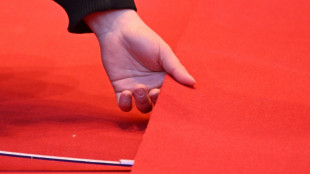 Berlin Film Festival to open with a rallying cry 'to defend artistic freedom'
Berlin Film Festival to open with a rallying cry 'to defend artistic freedom'
-
Taiwan leader wants greater defence cooperation with Europe: AFP interview

-
 Taiwan leader warns countries in region 'next' in case of China attack: AFP interview
Taiwan leader warns countries in region 'next' in case of China attack: AFP interview
-
World Cup ticket prices skyrocket on FIFA re-sale site

-
 'No one to back us': Arab bus drivers in Israel grapple with racist attacks
'No one to back us': Arab bus drivers in Israel grapple with racist attacks
-
Venezuelan AG wants amnesty for toppled leader Maduro

-
 Scrutiny over US claim that Mexican drone invasion prompted airport closure
Scrutiny over US claim that Mexican drone invasion prompted airport closure
-
Trump to undo legal basis for US climate rules

-
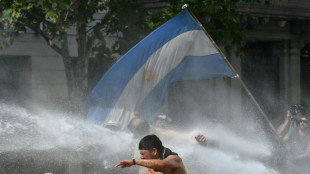 Protesters, police clash at protest over Milei labor reform
Protesters, police clash at protest over Milei labor reform
-
Dyche sacked by Forest after dismal Wolves draw

-
 France seeks probe after diplomat cited in Epstein files
France seeks probe after diplomat cited in Epstein files
-
Rivers among 2026 finalists for Basketball Hall of Fame

-
 Israel president says antisemitism in Australia 'frightening'
Israel president says antisemitism in Australia 'frightening'
-
Trump orders Pentagon to buy coal-fired electricity

-
 Slot hails 'unbelievable' Salah after matching Liverpool assist record
Slot hails 'unbelievable' Salah after matching Liverpool assist record
-
Von Allmen joins Olympic ski greats, French couple win remarkable ice dance

-
 Guardiola eyes rest for 'exhausted' City stars
Guardiola eyes rest for 'exhausted' City stars
-
US pushes for 'dramatic increase' in Venezuela oil output

-
 France's Cizeron and Fournier Beaudry snatch Olympic ice dancing gold
France's Cizeron and Fournier Beaudry snatch Olympic ice dancing gold
-
Man City close on Arsenal, Liverpool end Sunderland's unbeaten home run

-
 Van Dijk sinks Sunderland to boost Liverpool's bid for Champions League
Van Dijk sinks Sunderland to boost Liverpool's bid for Champions League
-
Messi out with hamstring strain as Puerto Rico match delayed

-
 Kane helps Bayern past Leipzig into German Cup semis
Kane helps Bayern past Leipzig into German Cup semis
-
Matarazzo's Real Sociedad beat Athletic in Copa semi first leg

-
 Arsenal stroll in Women's Champions League play-offs
Arsenal stroll in Women's Champions League play-offs
-
Milei labor law reforms spark clashes in Buenos Aires
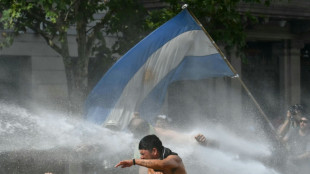
-
 Bangladesh's political crossroads: an election guide
Bangladesh's political crossroads: an election guide
-
Bangladesh votes in landmark polls after deadly uprising
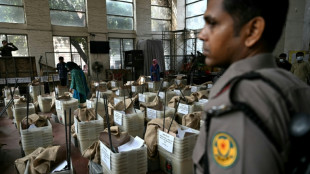
-
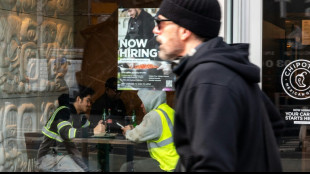 US stocks move sideways after January job growth tops estimates
US stocks move sideways after January job growth tops estimates
-
Man City close in on Arsenal with Fulham cruise

-
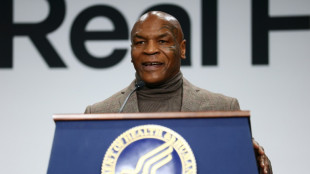 Mike Tyson, healthy eating advocate for Trump administration
Mike Tyson, healthy eating advocate for Trump administration
-
LA 2028 Olympics backs chief Wasserman amid Epstein uproar

-
 Brighton's Milner equals Premier League appearance record
Brighton's Milner equals Premier League appearance record
-
Seahawks celebrate Super Bowl win with title parade

-
 James Van Der Beek, star of 'Dawson's Creek,' dies at 48
James Van Der Beek, star of 'Dawson's Creek,' dies at 48
-
Scotty James tops Olympic halfpipe qualifiers as he chases elusive gold

-
 Swiatek, Rybakina fight back to reach Qatar Open quarter-finals
Swiatek, Rybakina fight back to reach Qatar Open quarter-finals
-
Trump tells Israel's Netanyahu Iran talks must continue
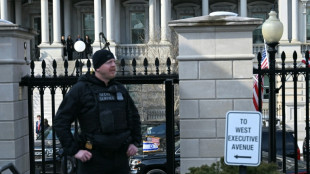
-
 England to face New Zealand and Costa Rica in pre-World Cup friendlies
England to face New Zealand and Costa Rica in pre-World Cup friendlies
-
'Disgrace to Africa': Students turn on government over Dakar university violence
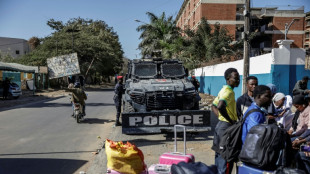
-
 Simon in credit as controversial biathlete wins Olympic gold
Simon in credit as controversial biathlete wins Olympic gold
-
McIlroy confident ahead of Pebble Beach title defense

-
 US top official in Venezuela for oil talks after leader's ouster
US top official in Venezuela for oil talks after leader's ouster
-
Ukraine will only hold elections after ceasefire, Zelensky says
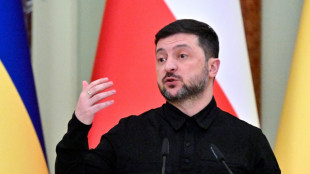
-
 WHO urges US to share Covid origins intel
WHO urges US to share Covid origins intel
-
TotalEnergies can do without Russian gas: CEO

-
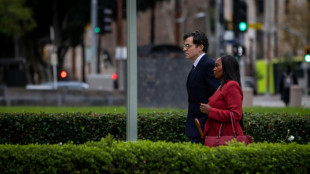 Instagram CEO denies addiction claims in landmark US trial
Instagram CEO denies addiction claims in landmark US trial
-
Israel's Netanyahu pushes Trump on Iran
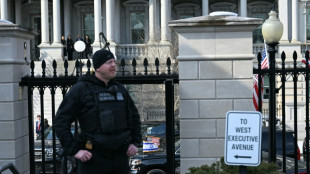

The painstaking task of identifying WWI dead
At least 600,000 soldiers who died in France during the First World War are still officially missing, their resting places unknown and unmarked.
While the passage of time renders the task of recovering the lost war dead increasingly complex, it is still possible to identify a few of the fallen.
The first step to is to determine whether discovered remains are really those of a soldier from WWI.
Researchers use the state of the remains and scraps of uniform or equipment to check that the skeleton doesn't date from an earlier period or is evidence of a crime scene.
Then they try to ascertain the soldier's nationality.
"The best sources of proof are metal-reinforced leather boots, which preserve well and are different depending on the country," said Stephan Naji, head of the recovery unit at Commonwealth War Graves Commission (CWGC).
His team in the Calais region of northern France is regularly contacted when remains are discovered.
- Buttons, boots and badges -
Soldiers who are uncontestably French or German are handed over to France's War Veteran's Office (ONAC) or Germany's VDK war graves agency.
"If there's a military plaque with a name of it and proof of next of kin, the soldier's descendants can repatriate him to his family home or they can let the state bury him in a national cemetery," said ONAC's Stephane Jocquel.
DNA tests are seldom carried out on the remains of French combatants.
One of the CWGC's missions is to help the authorities identify as many as possible of the 100,000 soldiers from the former British Empire who are still missing.
Buttons and insignia from uniforms are key clues, as are regiment badges as well as water bottles or whistles bearing the name of the soldier's unit.
But all the tell-tale signs need to tally. Some soldiers swapped badges as a sign of comradeship or recovered equipment from fallen brothers in arms.
Australian boots, for example, were particularly prized for their quality.
- 'Known unto God' -
Investigators also clean personal items, like razors, forks and watches, for fine details like the owner's engraved initials or a hallmark indicating the date and place the object was made.
If they can confirm the soldier's nationality, they pass on the information to the country's authorities, who cross check it with their lists of missing combatants.
Some countries, including Australia, Britain and Canada, carry out genealogical research to try to trace descendants, including DNA tests if any are found.
The search can take several years and is successful in only about two to three percent of cases, according to Alain Jacques, head of the archaeology service in Arras, northern France.
If a soldier is successfully identified, his remains are buried with military honours at the nearest Commonwealth cemetery, in the presence of descendants who wish to attend.
When the soldier cannot be identified, he is reburied with honours under a gravestone bearing the words "Known unto God".
The epitaph was chosen by British poet Rudyard Kipling, who spent years fruitlessly searching for his own son after he went missing, aged 18, in what would be called the war to end all wars.
B.Mahmoud--SF-PST




